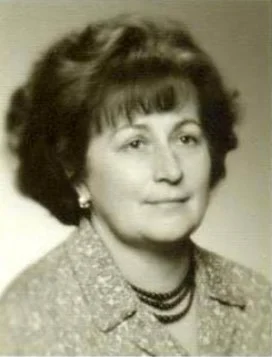P.M. and J.M. are Czech monozygotic twins whose mother died just after giving birth. As a result, the brothers were put away in a children’s home for 11 months. Fortunately, their maternal aunt took responsibility, and they remained with her for six months.
But this environment was also interrupted – the twins were sent back to the children’s home because the father remarried, and a new household was set up.

(1928-2021)
The twins joined the father’s new family with 2 biological sisters and 2 adopted siblings – a boy and a girl. So far the twin’s development was normal.
According to Koluchová, at roughly 1.5 years of age, the wins had enough time in a relatively normal environment to learn a few words and the initial importance of speech.
Unfortunately, the foster mother and biological father were unfit parents. The children were fed but kept in the basement, physically abused, and socially isolated from their siblings.
To describe the level of neglect, it suffices to say that a feather mattress was placed atop the children to mute the screams.
The twins spent the next 5.5 years in this inhospitable environment with only themselves and their primitive gestures and communication as comfort. However, unlike most cases of severe neglect, the twins had each other. It is speculated that this provided a form of protection against the cruel upbringing.
Fortunately, in 1967, the biological father brought one of the twins to a pediatrician for an inspection to prove that the boy was unfit for primary school.
The pediatrician suspected child neglect because they were 6-7 years old but looked 3 years old, stunted -suffering from rickets (a disease eradicated by that time) and lacking normal speech.
Further investigation proved the abuse, although the parents tried to cover it up. The twins were taken and examined. Professionals assumed that the disability was permanent.
Once free from their parents, the Czech twins were placed into serious physical recovery programs and schooling for children with severe learning disabilities.
After six months of this and court proceedings against the foster mother, an unusual twist occurred. After due diligence, the twins were awarded to two middle-aged sisters who passed the psychological assessment and had already raised a well-adjusted 13-year-old girl.
The boys prospered in their new home under loving guidance and protection from their new foster mom. She gave them unconditional love without lowering any standards on challenging them cognitively.
Due to their suboptimal development, they had to make up for lost time and were often in school classes below their age group. But they learned rapidly and skipped classes until they reached children 1.5 years younger than themselves. At fourteen years of age, their IQs measured 100 and 101. Perfectly normal for their age group
In the third follow-up article, Koluchova reports that at eighteen, the boys had IQs of 114 and 112. Understandably the young men had an aversion to basements and the dark. Both also served in the national draft.
Furthermore, they went on to become married and raise well-adjusted families of their own. One became an instructor for technical vocations and the other a computer specialist. There was no sign of the initial abnormality in physical development.
Sources:
- Koluchová, J. (1972). Severe deprivation in twins: a case study. Journal of Child Psychology and Psychiatry, 13(2), 107–114. doi:10.1111/j.1469-7610.1972.tb01124.x
- Koluchová, J. (1976). The further development of twins after severe and prolonged deprivation: a second report. Journal of Child Psychology and Psychiatry, 17(3), 181–188. doi:10.1111/j.1469-7610.1976.tb00390.x
- Koluchovà, J. (1992). Deprivation and its reparation in children of Czechoslovakia. Child Abuse Review, 1(1), 49–51. doi:10.1002/car.2380010108
How to cite this article according to APA:
Andres, S. (2021, October 24). Czech Twins Case Study (Koluchová, 1976). LAYMN. https://laymn.com/czech-twins/